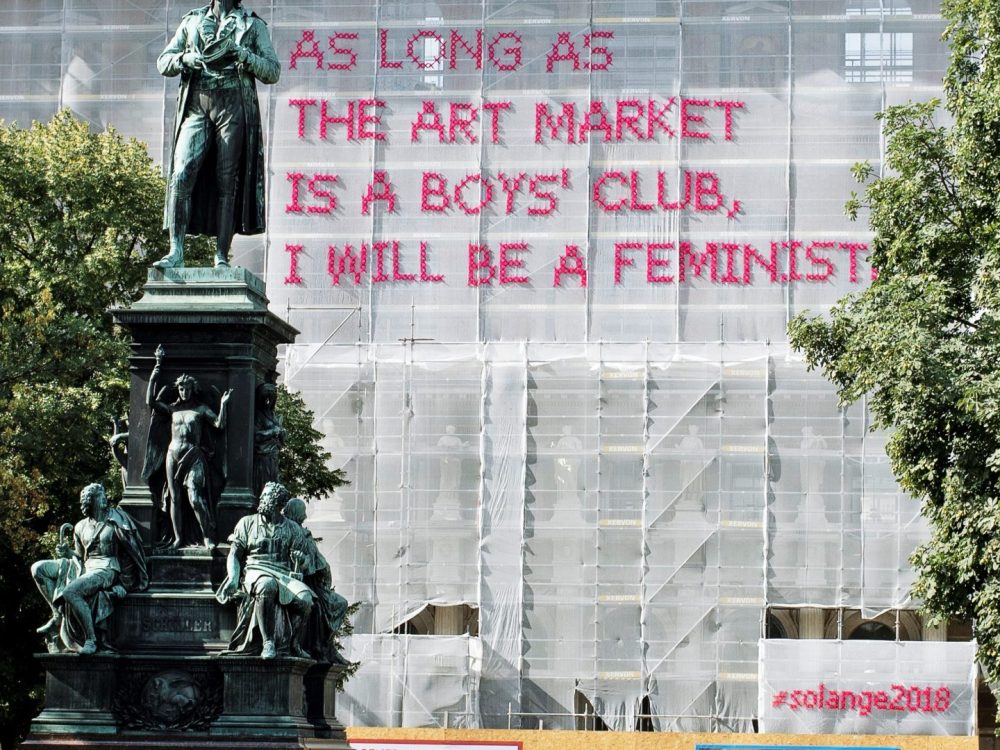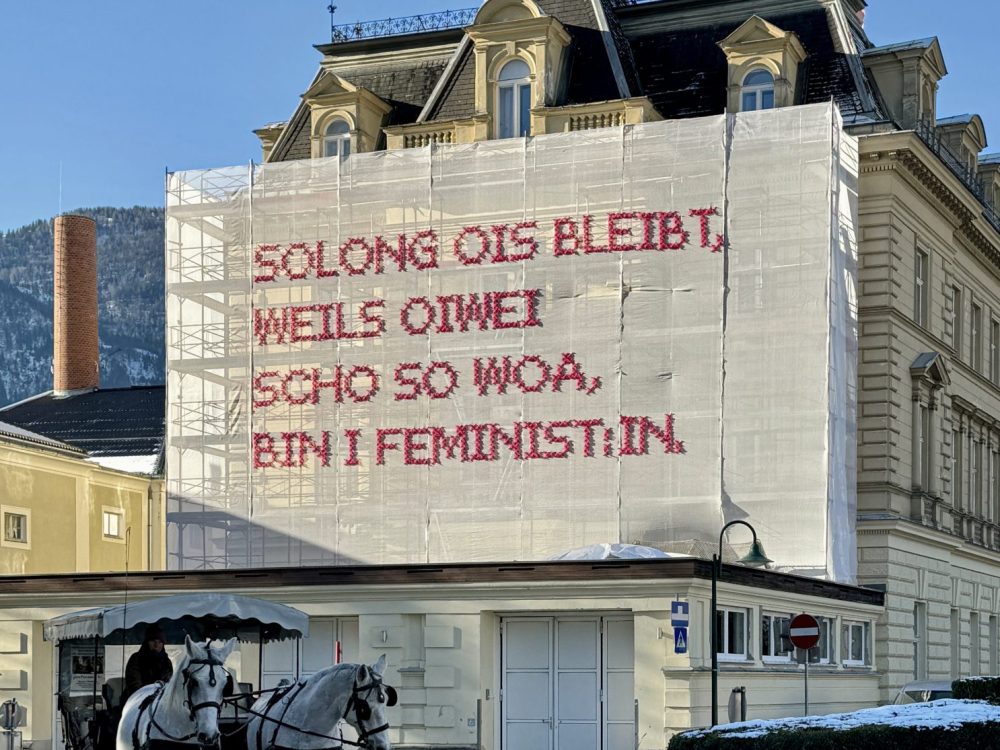
TANT QUE la liberté de ta fille dépendra de l’éducation de mon fils, je serai féministe.
AS LONG AS your daughter's freedom depends on my son's education, I will be a feminist.
On 20 September, the Austrian artist Katharina Cibulka will install a hand-embroidered, cross-stitched scaffolding net measuring approximately 200 m2 on the exterior of the FRAC Orléans building at 88 rue du Colombier. She was invited by Jacques Bayle, the interim artistic director of FRAC Orléans, to present the 30th installation of her international art series SOLANGE in Orléans.
SOLANGE is an international participatory art project. With its large lettering hand-embroidered onto scaffolding nets in bright pink tulle, it aims to raise awareness for gender inequalities people experience in our society. Every SOLANGE net features a sentence starting with “As long as…” and ending with “…I will be a feminist”. The nets create a field of tension between the traditionally gendered connotations of craftwork as female and construction sites as male spheres. Every net is preceded by a participatory process. The project’s kick-off took place during Nocturne Féministe (June 6, 2024 at FRAC Orléans). Following her presentations and workshops, the artist invited interested locals to submit their personal SOLANGE sentences.
With around 300 submitted sentences, the response was enthusiastic and extensive with topics ranging from the gender pay gap to feeling unsafe in public after dark or fearing assault to how bodies and clothing styles are judged, oppressive beauty ideals, or degrading language as well as outdated gender stereotypes and the connection between patriarchy and the climate crisis. One theme deeply resonated with the SOLANGE and the FRAC team: Education in schools and families is the most potent tool when it comes to creating awareness and preventing discriminatory behaviour. SOLANGE sentence #30 focuses on this central idea:
TANT QUE la liberté de ta fille dépendra de l’éducation de mon fils, je serai féministe.
AS LONG AS your daughter’s freedom depends on my son’s education, I will be a feminist.
“What role models do we offer our children and what impact do they have? In recent decades, we have taught our daughters that they are on equal footing with boys. We have empowered them and encouraged them to move beyond restrictive gender roles. But it is equally important to invest in the character development of boys. We need to teach our sons to recognise everyday sexism and sharpen their awareness of systems of oppression: When am I crossing a girl’s boundaries, when am I aiding harassment by staying silent? Boys can learn early on to take responsibility for their actions and stand shoulder to shoulder with girls. Respect is the prerequisite for freedom. Redefining these terms begins with our children,” Katharina Cibulka elaborates on the SOLANGE sentence.
Girls, women and marginalised groups can move around freely and without fear in public spaces if boys and men respect their boundaries. Respect begins with language and goes all the way to behaviour and action. Overcoming restrictive and destructive stereotypes goes beyond parents’ and guardians’ responsibility. Everyone working with children and teens can benefit from questioning their own preconceptions and avoiding outdated ideas about gender.
What kind of world do we want to live in? What kind of community and society do we seek? What priorities do we set? In order to cope with global challenges like the climate crisis, wars, right-wing populism and the backlash against feminism, we desperately need social structures that are based on equality, empathy and fairness. There is simply no time left to deal with old gender clichés. The sooner we get over them, the sooner we can bundle our energies to deal with the big issues we face. And so, we say: Educate your sons and come join us in spreading equality!
Cooperation partners:
FRAC Centre-Val de Loire
Austrian cultural forum Paris
Special thanks to curator Abdelkader Damani
Fotocredits: Katharina Cibulka, Ferdinand Cibulka, Tina Themel








